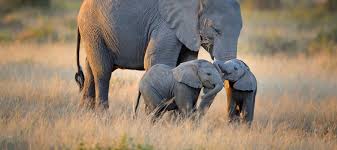
Asian elephant calves offer an interesting system to study the development of behaviour. They are born with a well-developed sensory system technically called precocial and are capable of locomotion hours after birth.
Daily Current Affairs Quiz 2020
Key-Points
They are dependent on their mothers for nutrition, physical protection, and social support for a prolonged period, allowing them ample time and opportunity to learn and perfect the skills necessary for independent survival.
Trying to probe the peculiarity of behaviour of elephants which stands out against many precocial species, researchers from Jawaharlal Nehru Centre for Advanced Scientific Research (JNCASR) an autonomous institute of the Department of Science & Technology, Government of India found that though their trunks take time to develop adult-like usage, they develop handedness (right or left-side bias) in trunk usage quite early.
The team of researchers observed 30 unique calves from 11 distinct clans (female social groups) in Kabini Elephant Project in Nagarahole and Bandipur National Parks from December 2015 to December 2017 to look at the development of trunk motor control, laterality — or side preference/handedness — in trunk usage, and various social and non-social behaviours.
They found that whereas calves took about 6 months to achieve fine motor control of the trunk to pluck grass in an adult-like manner, even young calves — those below 3 months of age — showed handedness (right or left-side bias) in trunk usage.
It suggests that such handedness might be innate in Asian elephants. This would be analogous to human infants showing right-handedness or left-handedness soon after birth.





